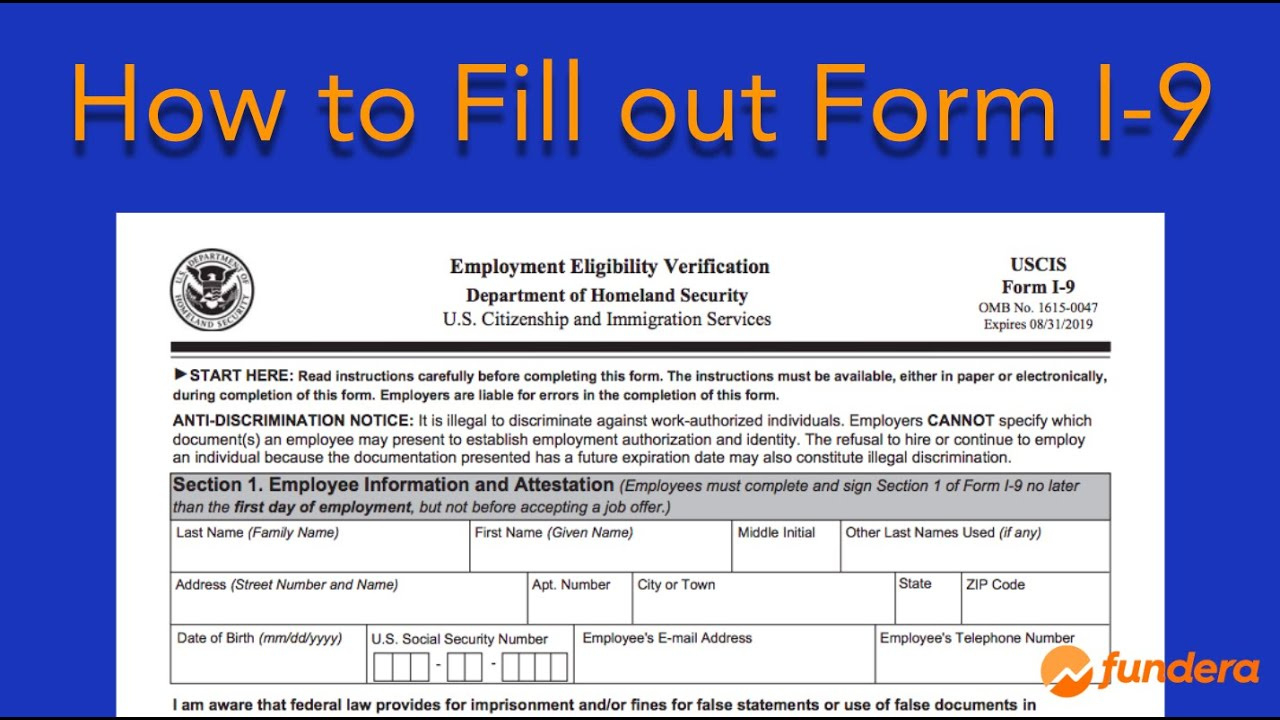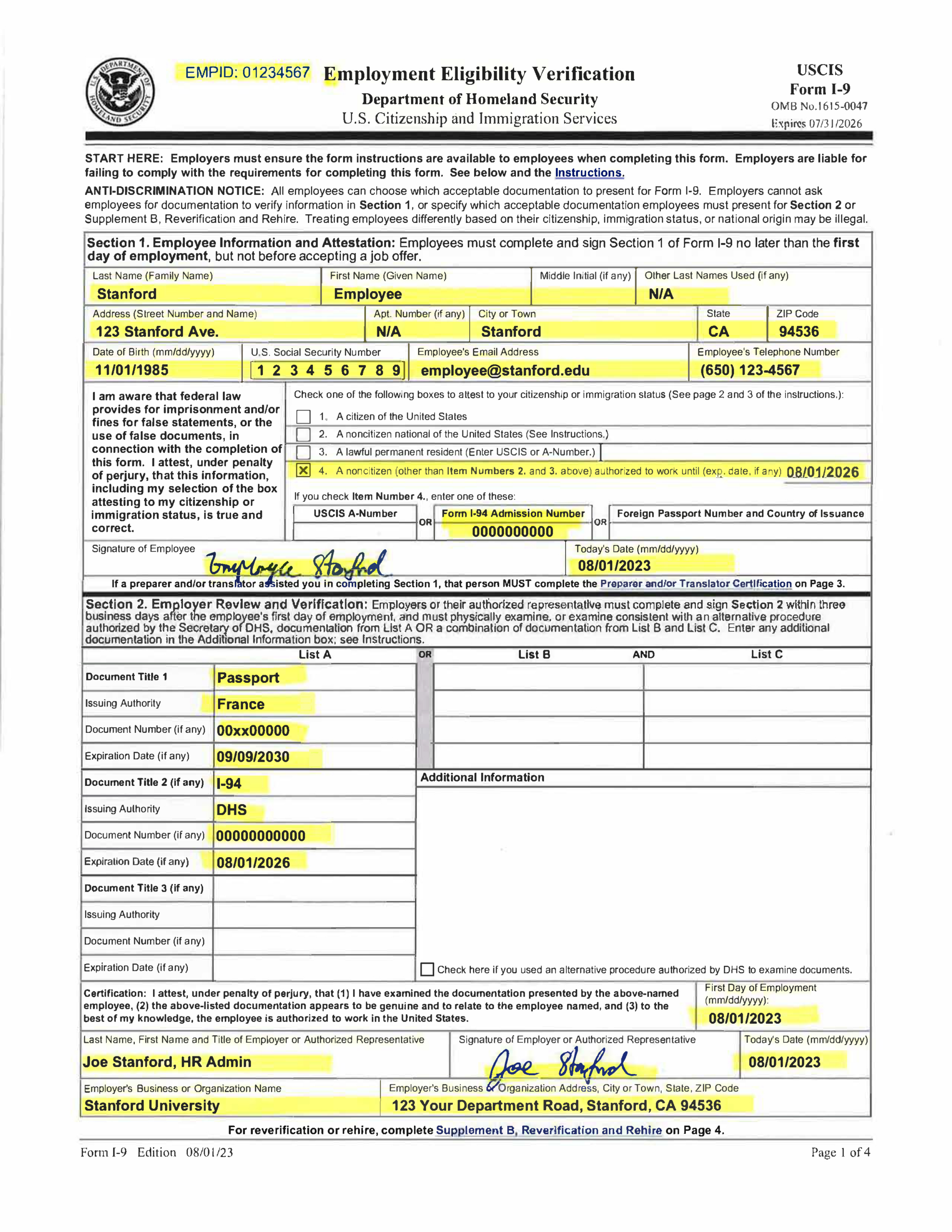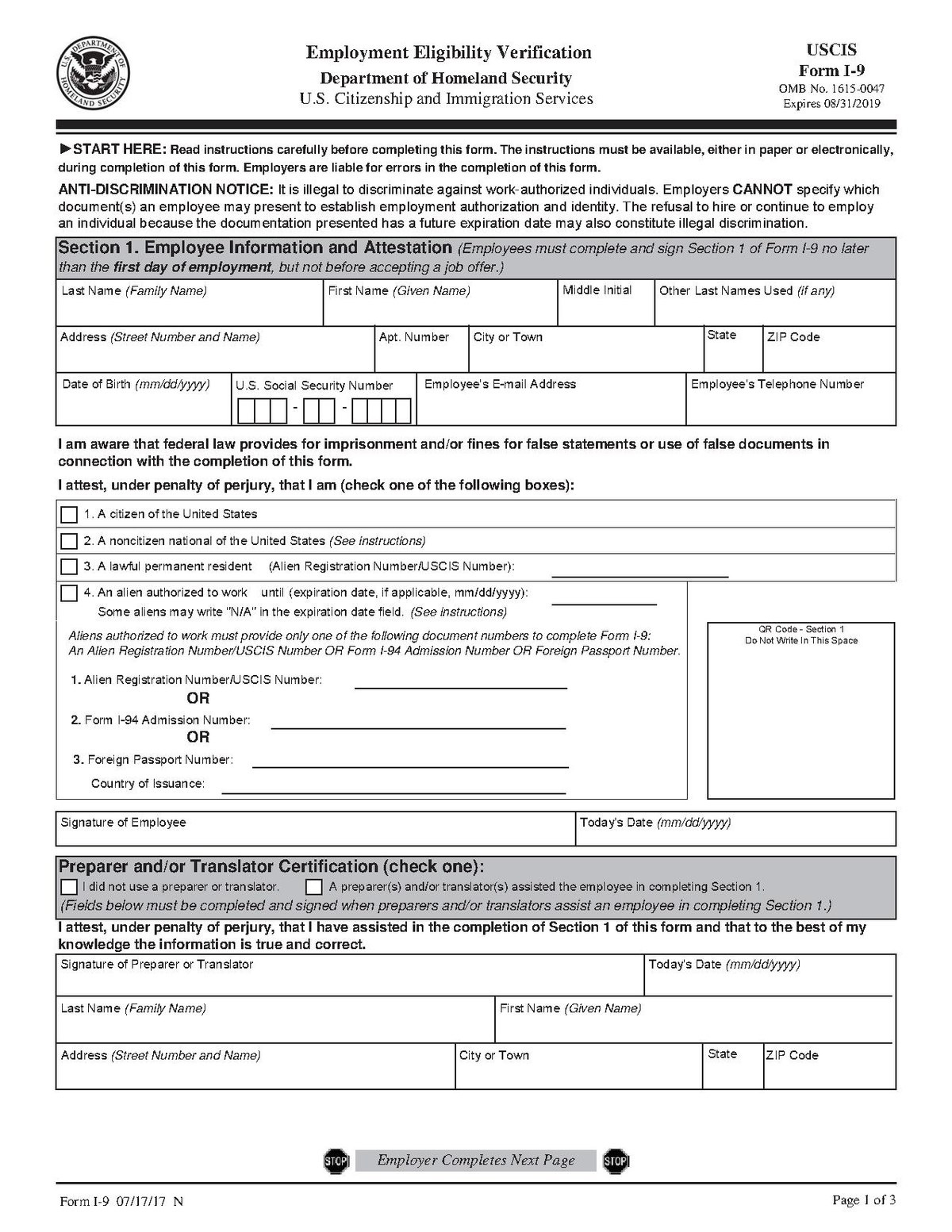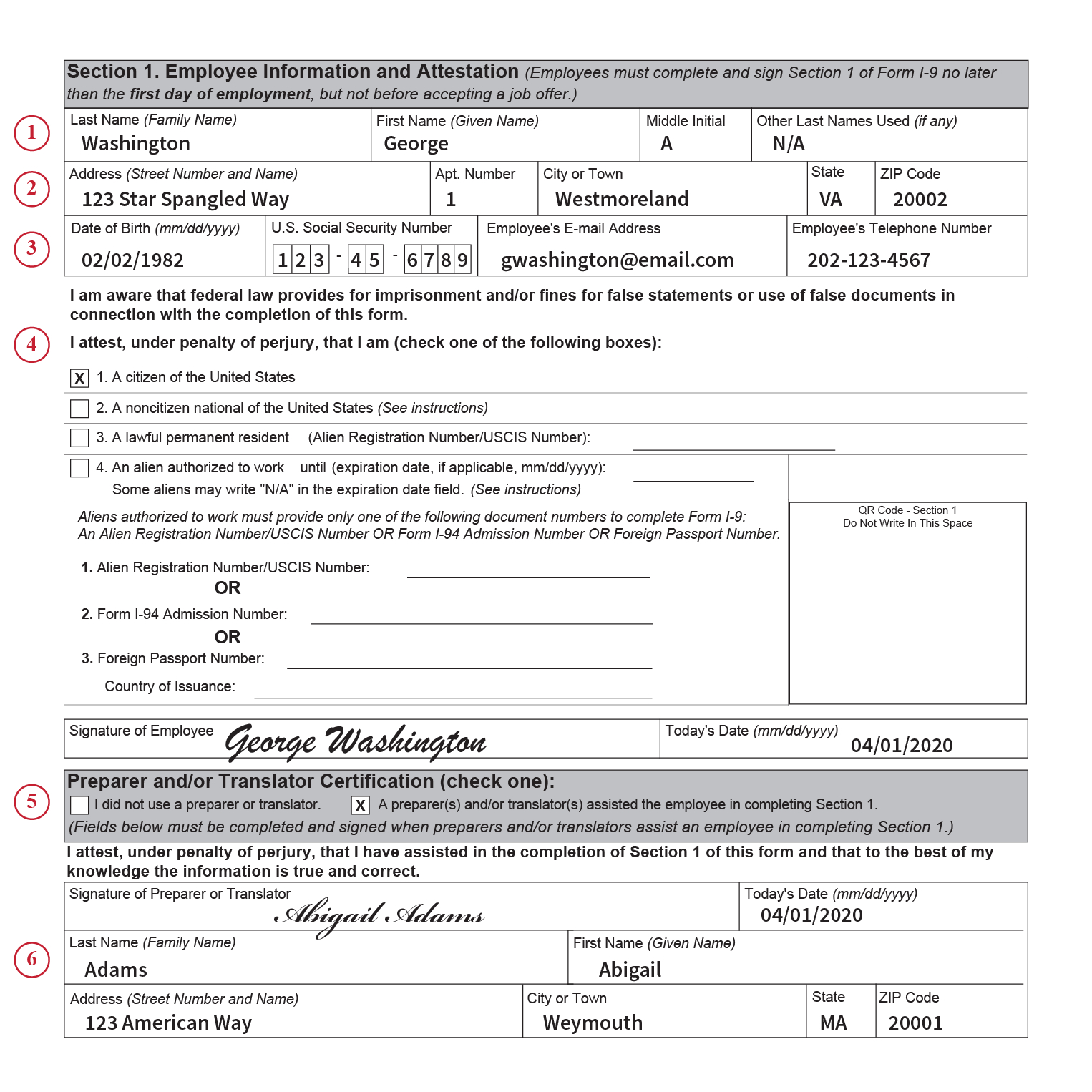The I-9 form, officially known as the Employment Eligibility Verification form, is used in the United States to verify the identity and legal authorization to work of all paid employees. Here’s an overview of its purpose and importance:
1. Verification of Work Eligibility
The primary purpose of the I-9 form is to verify that every individual hired for employment in the United States is legally authorized to work in the country. This includes U.S. citizens and non-citizens alike.
2. Compliance with Federal Laws
The requirement to complete the I-9 form comes from the Immigration Reform and Control Act (IRCA) of 1986. This law was implemented to deter illegal immigration and prevent employers from hiring individuals who are not authorized to work in the U.S.
3. Prevention of Discrimination
The I-9 process is designed to apply uniformly to all employees, regardless of their national origin or citizenship status. This helps to ensure that all workers are treated equally and fairly in the employment verification process, reducing the risk of discriminatory practices.
Key Elements of the I-9 Process
- Employee’s Role: Employees are required to provide documentation that verifies their identity and eligibility to work. They can choose from a list of documents that meet these criteria (such as a U.S. passport, a driver’s license plus a Social Security card, or a foreign passport with a work visa), which are divided into List A (documents that prove both identity and employment eligibility), List B (documents that prove identity only), and List C (documents that prove employment eligibility only).
- Employer’s Role: Employers are responsible for examining the documents provided by the employee to ensure they are genuine and relate to the employee. They must complete and retain the I-9 form for a designated period (at least three years after the date of hire or one year after the day employment ends, whichever is later). Employers must also make the forms available for inspection by authorized U.S. government officials, such as those from the Department of Homeland Security, the Department of Labor, or the Office of Special Counsel for Immigration-Related Unfair Employment Practices.
Compliance and Penalties
Failure to properly complete, retain, or produce I-9 forms for inspection can result in legal consequences, including fines and penalties. This underscores the importance of the I-9 form in maintaining legal work practices and ensuring that all employees are authorized to work in the U.S.
In summary, the I-9 form is a crucial document for ensuring that employers comply with U.S. employment laws by verifying the identity and work eligibility of their employees, thereby upholding the integrity of the U.S. labor market.
Images Related to What Is The I9 Form For



